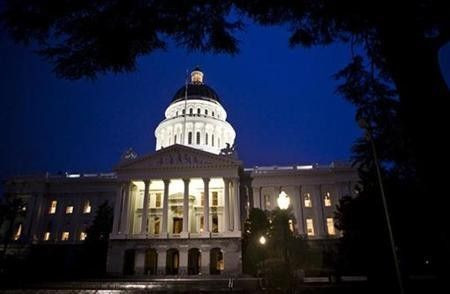Yazoo, Unions, And An Easy Way To Reduce Corruption

KEY POINTS
- Modern-day corruption is not as simple as the days of the Yazoo Land Act
- Transactional “donations” are made with the expectation there will be an exchange or series of transactions that ultimately benefit the donor, usually at the expense of the public
- The simplest way to blunt the impact of transactional donations is to incentivize ordinary citizens to make small donations that can, in aggregate, compete with the money from transactional donors
The template for corruption in America is the 1794 Yazoo Land Act of the Georgia Legislature. A group of land speculators formed a company to purchase land along the Yazoo River in what is now Mississippi. The company owners gave shares to the Governor and members of the Assembly in exchange for their agreement to pass an act authorizing the sale of 40 million acres of land to the company for $500,000, a very good deal for the buyer. Once the land was sold by Georgia, the company divided the land into smaller parcels and resold the land to speculators—making the shareholders, and the corrupt legislators who were given shares, very rich. The corruption was simple: the legislators accepted shares in exchange for an official act which made those shares valuable.
Unfortunately, modern-day corruption is not as simple as the days of the Yazoo Land Act. Recently, Hoboken, New Jersey, approved the construction of a new Hilton Hotel on the waterfront. The city gave the developer permission to build taller than permitted by zoning, with no off-street parking and several other “variances.” In exchange for the concessions from the city, the developer agreed all employees of the hotel would be members of a hotel workers union, and all construction would be performed by union labor.
In announcing the deal, the mayor said: “It is my intention that this agreement shall serve as a model for all future deals. I am putting developers on notice: if you want the opportunity to do business in our city, we expect union labor.”
Documents show a PAC run by the Operating Engineers Union spent $50,520 on Hoboken’s 2017 Mayoral election. The union endorsed the current Mayor, so it is reasonable to assume the PAC controlled by the union spent money in support of him. The money flow was: 1) the union put money in a PAC, 2) the PAC helped the Mayor’s Campaign (not the Mayor himself), 3) the Mayor required a third party to employ union labor in exchange for concessions by the government (an official act), and finally 4) the union members employed by a third party paid dues to the union, clearly benefitting the union. This does not fit the Yazoo formula exactly. It smells like corruption, but it is not straightforward corruption in the Yazoo sense. Sadly, this kind of transaction, called “wheeling,” is a very common way for New Jersey politicians to reward their donors.
Laws have a difficult time addressing wheeling. New Jersey’s politicians are very creative. Every law abridges some freedoms. Making more complex laws to address the politician’s increasing creativity abridges even more freedoms while triggering more creative efforts to circumvent the law. It is a difficult cycle to break. It is especially difficult when the politicians are writing the laws, the politicians have the power to enrich private interests and the politicians desperately need more money to fund increasingly expensive campaigns.
How do we fight these crooked deals? First, I would argue the problem is not that money is given to politicians. The problem is some donations are transactional. Transactional “donations” are made with the expectation there will be an exchange or series of transactions that ultimately benefit the donor, usually at the expense of the public.
Any solution to this problem need not restrict the flow of transactional donations to politicians. In fact, almost any additional restriction will most likely result in unintended consequences and abridged freedoms whose costs are nearly as great as the benefits of reducing corruption. A solution must only make transactional donations unlikely to result in the election of the politician or unlikely to result in the politician taking official action to benefit the transactional donors.
I believe the simplest way to blunt the impact of transactional donations is to incentivize ordinary citizens to make small donations that can, in aggregate, compete with the money from transactional donors. New Jersey should offer taxpayers a refundable tax credit of up to $25 per candidate with an aggregate limit of $100 per year for donations made to state or local campaigns. The tax credit would encourage small donors while making it possible for campaigns to win without the money, and accompanying obligations, of transactional donors. I believe small donors could create a virtuous cycle where transactional donors are increasingly unsuccessful in hand-picking the winners of elections and politicians are increasingly free from the demands of transactional donors.
Eventually, we would get a leaner, more responsive government—something that is better for everyone.
Paul Lichstein is NE Regional Director of Take Back Our Republic
© Copyright IBTimes 2024. All rights reserved.




















